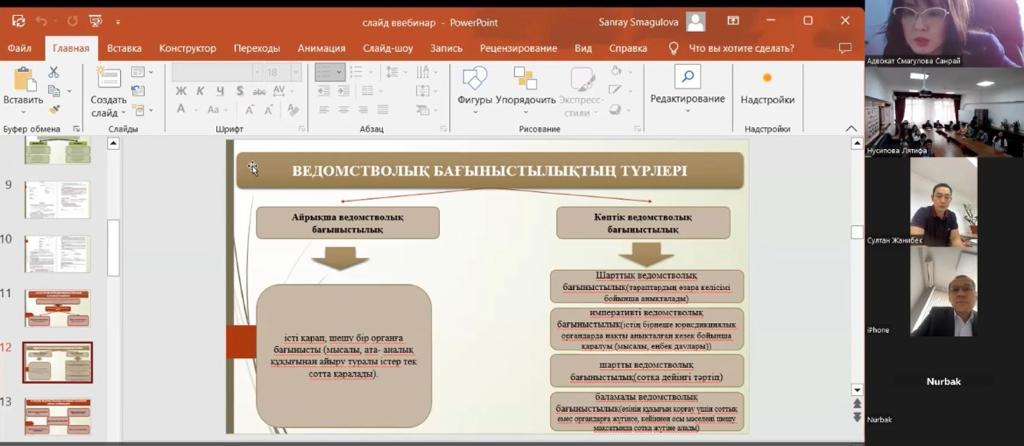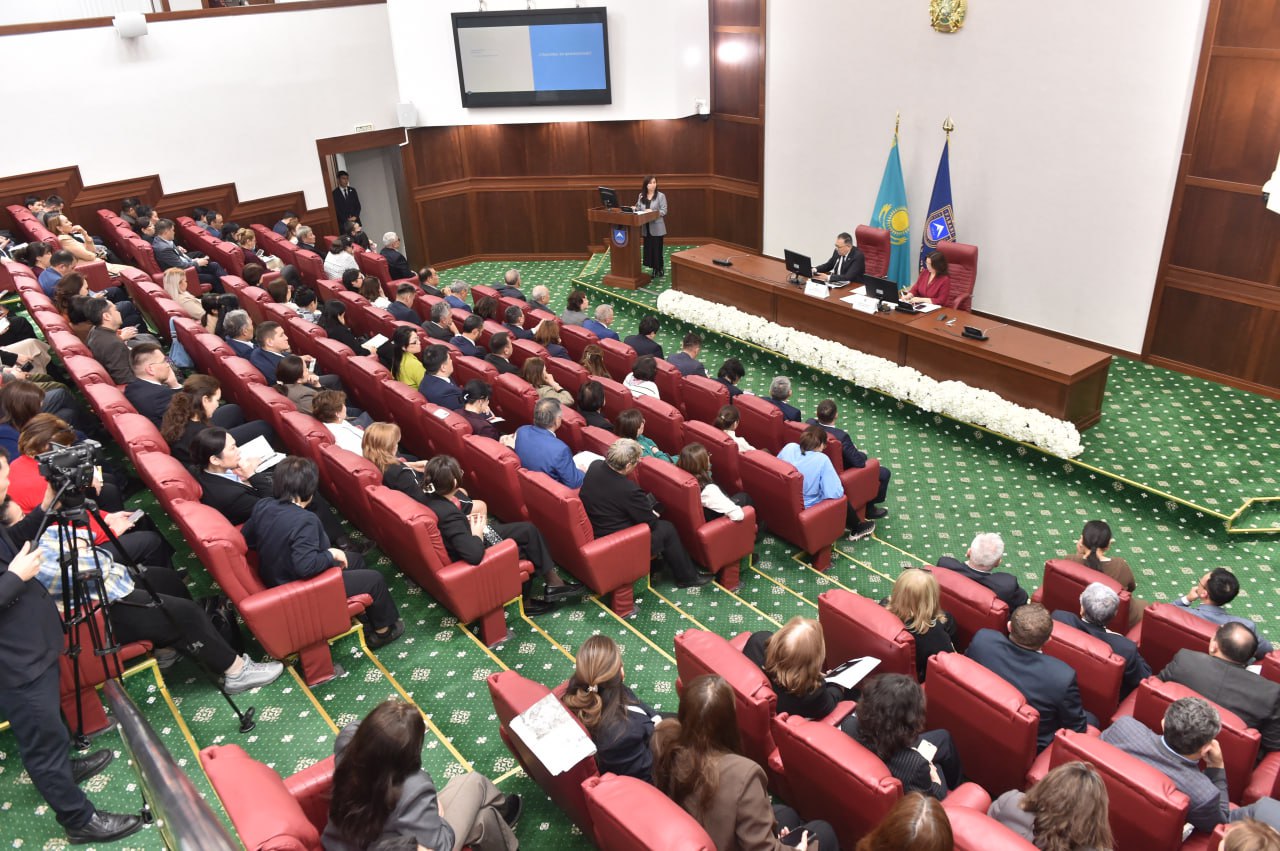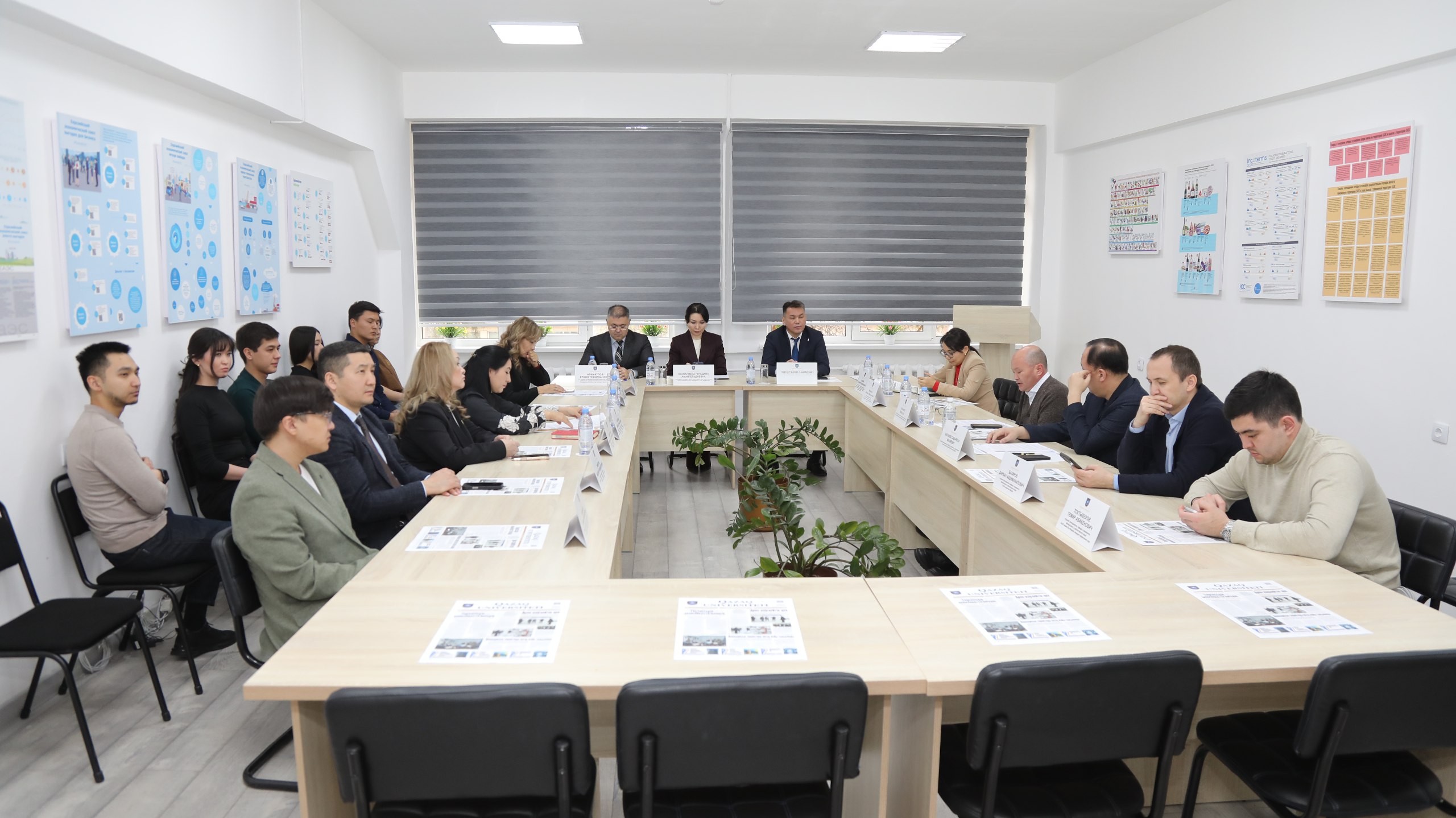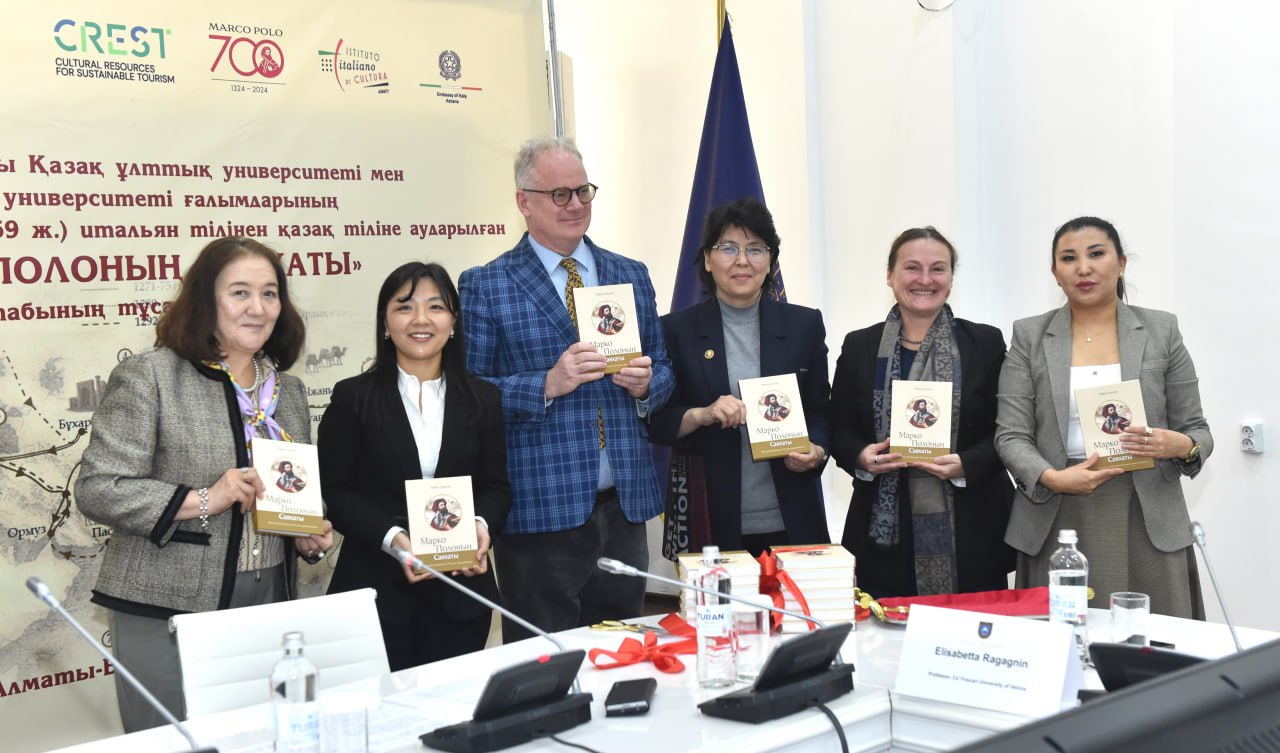- Main
- News
- at the Faculty of law of the Kazakh National University named after Al-Farabi, the Department of theory and history of state and law, constitutional and administrative law held a webinar aimed at the population on the topic "ensuring access to justice for all
at the Faculty of law of the Kazakh National University named after Al-Farabi, the Department of theory and history of state and law, constitutional and administrative law held a webinar aimed at the population on the topic "ensuring access to justice for all

On September 08, 2023 at 11: 00 in the framework of the implementation of measures to achieve indicators of social and environmental sustainability in higher educational institutions QS Sustainability University Rankings in honor of the International Literacy Day, the Department of theory and history of state and law, constitutional and administrative law of the Al-Farabi Kazakh National University held a webinar on the topic "ensuring access to justice for all" aimed at the population. The webinar was held to implement the Sustainable Development Goals (SDGs). The purpose of the webinar was to improve the legal literacy of citizens.
In 2015, Kazakhstan signed a document for further global development at the UN summit, noting that the goals and guidelines of the SDGs fully coincide with the priorities and objectives of Kazakhstan.
One of the tasks of the SDGs is to promote the rule of law at the national and international levels and ensure equal access to justice for all.
What is the essence of this goal? This goal is to promote the creation of a peace-loving and open society in the interests of sustainable development, to ensure that justice is achieved for all, and to create effective, accountable and broad participation-based institutions at all levels.
What should be done to achieve this goal? In order to achieve peace, justice and transparency, it is important to carry out joint work on the implementation of long-term solutions aimed at ensuring universal participation of the state and civil society in the reduction of violence, the administration of justice, the fight against corruption and management processes on an ongoing basis. Freedom of expression in private and public life must be guaranteed. People should be able to participate in making decisions that affect their lives. Laws and policies must be applied without discrimination in any way. Dispute settlement should be carried out on the basis of the existing political and judicial systems. The principle of complete denial of all corruption phenomena should be introduced everywhere.
This webinar was held as part of the implementation of 16 SDGs. Promoting the creation of a peaceful and open society in the interest of sustainable development, ensuring that justice is achieved for all, and creating effective, accountable, and broadly participatory institutions at all levels.
The first speaker was the judge of the Medeu District Court of Almaty Asel Nurlanovna Abisheva, candidate of law, the speaker noted the principles of building a judicial system in the Republic of Kazakhstan, paying special attention to the activities of the courts of First Instance and the procedure for filing claims by citizens. Answering the questions of the interested audience, Assel Nurlanovna dwelled in detail on the procedure for pre-trial settlement of disputes, noting that to some extent this reduced the work of the court of first instance. The listeners were interested in the procedure for the work of the court of First Instance and the specifics of filing appeals and Cassation appeals. The speaker answered the questions in detail.
The second speaker was the lawyer of the Almaty City Bar Association Smagulova Sanray Kanatovna. Its presentation included the procedure for filing a claim, the requirements for its execution, the procedure for payment of state duty and exemption from it. The audience was very interested in the speech and asked a lot of questions about court costs in production, types of state duties. During the conversation with the audience, the speaker revealed the concept of a criminal record, told about judicial acts, the procedure for their execution. He gave interesting examples from judicial practice.
Concluding the webinar, The head of the Department of theory and history of state and law, constitutional and administrative law, candidate of Legal Sciences Useinova Karlygash Rakhimzhanovna summed up the discussion, noting the importance of ensuring access to justice for the development of democratic processes in the New Kazakhstan.
The Department of theory and history of state and law, constitutional and administrative law plans to further hold meetings of law enforcement officers with students and all comers within the framework of the implementation of SDGs 16.
Organizers: Department of Theory and History of State and Law, Constitutional and Administrative Law.
Other news


